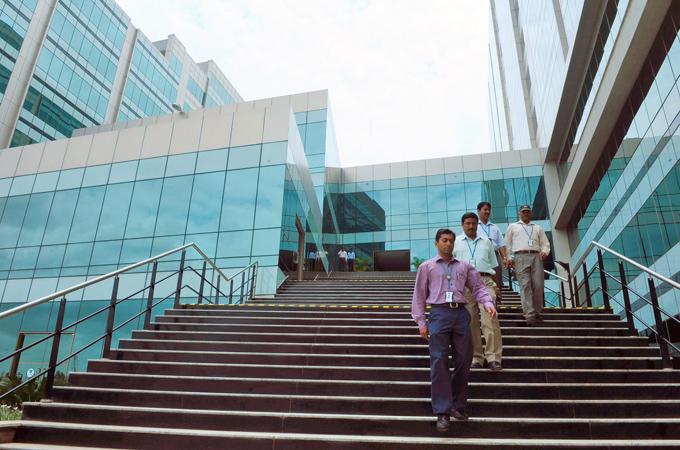
OVERVIEW
MANAGEMENT
PERFORMANCE
POSSIBILITIES
CAPITALS
ACTIVITIES
ACTORS
BURGESS
Jobs |
|
Commentary
The reform needed is not a return to a pure money profit laissez faire market economy, but a strong migration to a valuadd laissez faire market economy where all the dimensions of the triple bottom line are in play ... that is profit, people and planet ... rather than just the profit dimension.
|
|
The outsourcing bogeyman ... Outsourcing benefits all countries by focusing on competitive advantage, but many politicians do not understand this.
Outsourcing of services has been a persistent cause of panic and protectionism in recent years, especially in the United States since the 2004 presidential election. Back then, the Democratic candidate, Senator John Kerry, upon hearing that digital x-rays had been outsourced from Massachusetts General Hospital in Boston for examination by radiologists in India, denounced firms that outsourced as Benedict Arnolds, the most infamous traitor in US history. Kerry’s misstep was followed by alarm over outsourcing across the West. If free trade is to regain the support of statesmen who now hesitate over liberalising trade with developing countries, the myths that turn outsourcing into an epithet must be countered.
Myth 1:
First, it is simply not possible to outsource everything. For example, the fact that I can call someone in Bangalore to tell me how to fix a computer problem presupposes that I can understand her instructions. I tried this with a Dell computer and gave up after repeated attempts. I was so desperate that I asked Michael Dell, whom I met at the World Economic Forum in Davos, for a replacement. That is a remedy unavailable to others, of course. So Dell has now given up relying on call centers. Besides, many 'electronic plumbers' have emerged who will come to your computer and fix the problem while you spend the time working where your competence lies. Second, there are manmade restrictions to outsourcing particular types of expertise: professional organisations often intervene to kill outsourcing simply by requiring credentials that only they can provide. Thus, foreign radiologists need US certification before they are allowed to read the x-rays sent from the US. Until recently, only two foreign firms qualified.
Myth 2:
Indeed, there has been substantial growth in 'reverse outsourcing,' ie, 'insourcing'. Indian firms like Infosys and Wipro, giants in the information-technology sector, are now looking for cutting-edge services and high-grade talent as they compete for local markets such as the US. At IQor, the hugely successful outsourcing entrepreneur Vikas Kapoor now has 12 US locations, which account for half of its 11,000 employees.
Myth 3:
Another 'jobs fallacy' is that when a job disappears in a Western country and turns up in India, it must have been 'exported' by nefarious businessmen. But, in many cases, the job has simply become uneconomic to maintain in the West, regardless of whether or not India exists. If it costs a US nursing home $2 per call to get someone to remind a patient to take her medicine, the job of providing such reminders will disappear. But if Indians can make the call for $0.25, the nursing home might well sign on. This would make its patients healthier, drug makers more profitable, and India better off, because employment increases. In short, everyone wins from outsourcing of services. Alas, few understand this.
Jagdish Bhagwati, Professor of Economics and Law at Columbia University and Senior Fellow in International Economics at the Council on Foreign Relations, was Co-Chair of the High-Level Trade Experts Group appointed by the British, German, Indonesian, and Turkish governments.
The views expressed in this article are the author's own and do not necessarily reflect Al Jazeera's editorial policy. Source: Al Jazeera |
|
Jagdish Bhagwati ... Jagdish Bhagwati is university professor of economics and law at Columbia University.
Last Modified: 03 Sep 2011 14:07 |
| The text being discussed is available at http://www.aljazeera.com/indepth/opinion/2011/08/201182974857986142.html |
